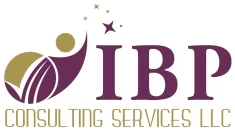Consistency and communication.
Does EVERYONE on your business team know the procedure in case of an emergency business closure? Do they know whom to call to find out? Many conditions allow 12-24 hour in advance preparation, easing the last minute planning crunch. But, what about the surprises?Though no one can predict all the scenarios that may result in a forced business closure, set certain guidelines for the most common concerns in your area. With weather likely the most common cause, be prepared for anything: water main breaks, fires, road closures, etc. Set a plan in place ahead of time.
Calling the closure
It is always a difficult decision to close a business for a shift or a day. Aside from the obvious loss of income and productivity, along with closure itself comes the hassle of communicating to clients, rescheduling appointments, inaccessibility for those that still need your services/products. The individual making that call must consider the risk to the employee in getting to the site, being there with possibly less support AND leaving site again. Indeed, employer liability dramatically increases operating under poor conditions – in some industries both from the employee and the consumer standpoints. Be aware of the limitations. Once the closure is called, however, pursuant action must take place as quickly and efficiently as possible. Coordinator in place After the decision is made to close, one individual must be assigned as the scheduling coordinator. S/he may have been predetermined (best) or at the time of the closure call. This person must understand the integrals of the organization in order to make a sound decision: what must be done, which and how many people are needed, as well as what access is required for the necessary tasks. The coordinator should have access to the contact information to all employees. Even if a phone tree mechanism is set into place, the plan should include several crossover checks to avoid one missing link to leaving a whole section unaware. For systems that rely on automated texting or phone calls – routinely verify each employee’s contact information. Don’t forget to include other staff not on the payroll that also comes in – interns, volunteers, etc. Avoid unnecessary calls and confusion: unless specified differently, all employees should know who the emergency coordinator is and expect to be contacted by this person or the pre-determined system. ALWAYS be sure to assign a back-up in the event the pre-assigned scheduling coordinator is unavailable.
Who should show up?
In some situations, the business could be found liable for someone required to come in with dangerous driving conditions. But many industries have critical jobs that must be done regardless of closures or not – hospitals, pet boarding, emergency utility maintenance, etc. Though the entire employee force may not be required, individuals with the necessary skills, knowledge and access to keep the organization functioning with the bare needs must always be easily identifiable by the scheduling coordinator. Knowing these key people is important ahead of time!
Don’t forget the clients/customers
If your clients make the efforts to face the conditions only to find a dark building, they will not be happy.
Make sure to always have access to the phone system from off-site in order to change the outgoing messaging. If scheduling by appointments, contact clients as soon as possible to notify them of the closure. Ideally, the scheduling/operating system can also be accessed outside of the location so that all contact information can be found.
Awareness
Just because of a post back in December, all employees may not know about the emergency closure policy. Turnover and forgetfulness keep communication tricky!
As with any other procedure, maintain consistent staff training. Keep on a recurring reminder to send out routine memos reviewing emergency closure policies for the company.
Do you want efficient staff meetings?
Dr. Ingrid Pyka is an executive business consultant that has helped companies and entrepreneurs find success in their goals, guiding them through millions of dollars in increased revenues. If you would like to book Ingrid to keynote your next event, contact ingrid@ingridpyka.com.







